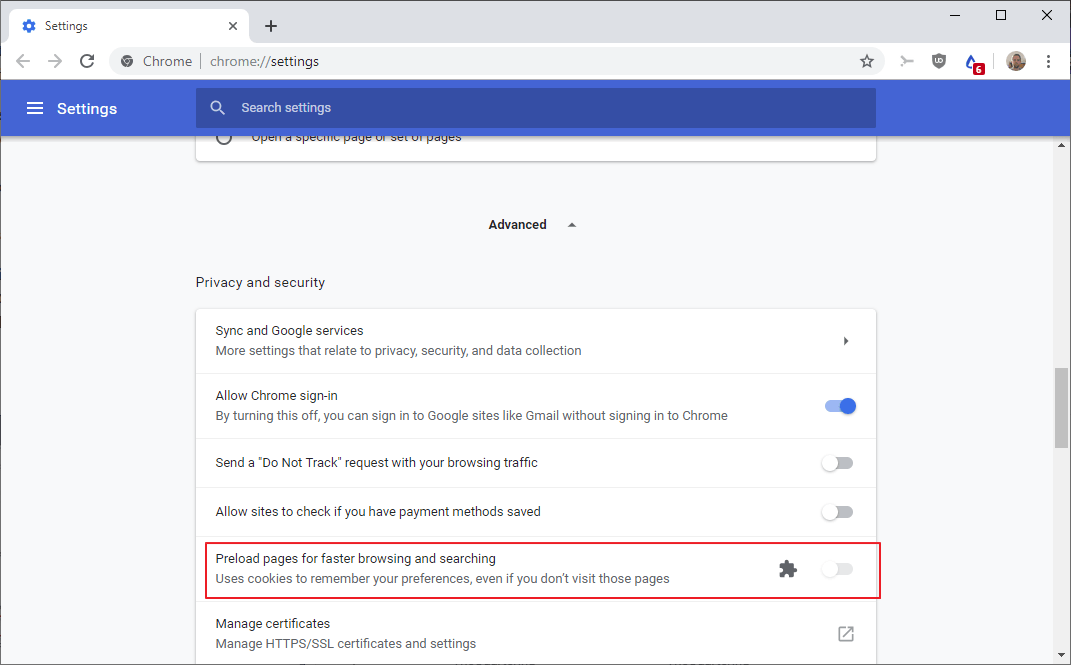by Martin Brinkmann on April 23, 2019 in Google Chrome – 1 comment
If you have upgraded Google Chrome to the newest stable version, version 73, and checked the preferences and settings, you may have noticed that the preference “Use a prediction service to load pages more quickly” is no longer listed under privacy and security.
If you set the preference previously, you may wonder if it has been removed from the browser or whether it was moved to another location.
Short answer: it appears that Google renamed the preference, and that the option to turn off DNS prefetching and the preloading of content is still supported.
When Google launched Chrome, it integrated a feature that it called DNS Fetching back then. DNS fetching was designed to retrieve the IP addresses of links on visited webpages to speed up the loading time on activation.
Google stated that the feature would speed up the loading by approximately 250ms when compared to cold connections (without fetching).
The company introduced preloading of content in later versions of Chrome. Google Chrome would prioritize links and load content of resources with the highest likelihood that a user would visit them.
Chrome 73: new preload setting

Chrome 73 users find a new setting listed in the browser’s preferences. Google Chrome does not display”Use a prediction service to load pages more quickly” anymore but “Preload pages for faster browsing and searching”.
The setting has a description: “Uses cookies to remember your preferences, even if you don’t visit those pages”.
If you toggle the setting off, Chrome won’t run DNS look ups for links and it won’t preload high priority targets for user actions either.
Downside to this is that sites that Chrome connects to may write cookies on the system and may read their own cookies; this may happen even if the linked resource is not visited actively by the user.
Google highlights how the setting works on a support page on the official Chrome Support site.
Preload pages for faster browsing and searching: Browsers use an IP address to load a webpage. When you visit a webpage, Chrome can look up the IP addresses of all the page’s links and load the ones you might navigate to next. If you turn this setting on, websites and any embedded content that are preloaded can set and read their own cookies as if you had visited them, even if you don’t.
Browser extensions like uBlock Origin may force the setting to off automatically. You find the option to disable that in the extension’s options. The extension does this to prevent connections from blocked network requests.
Now You: Do you use prefetching?